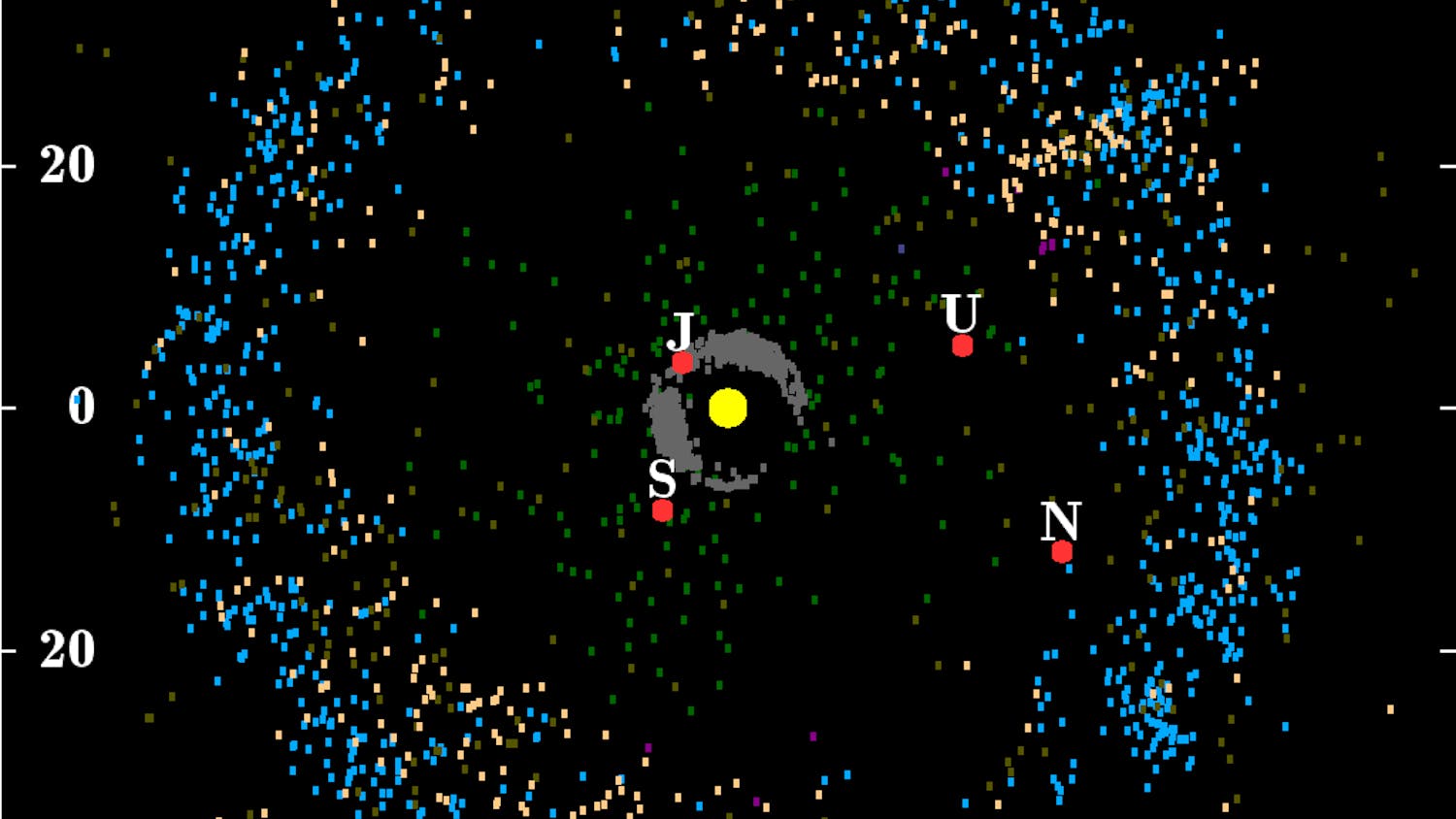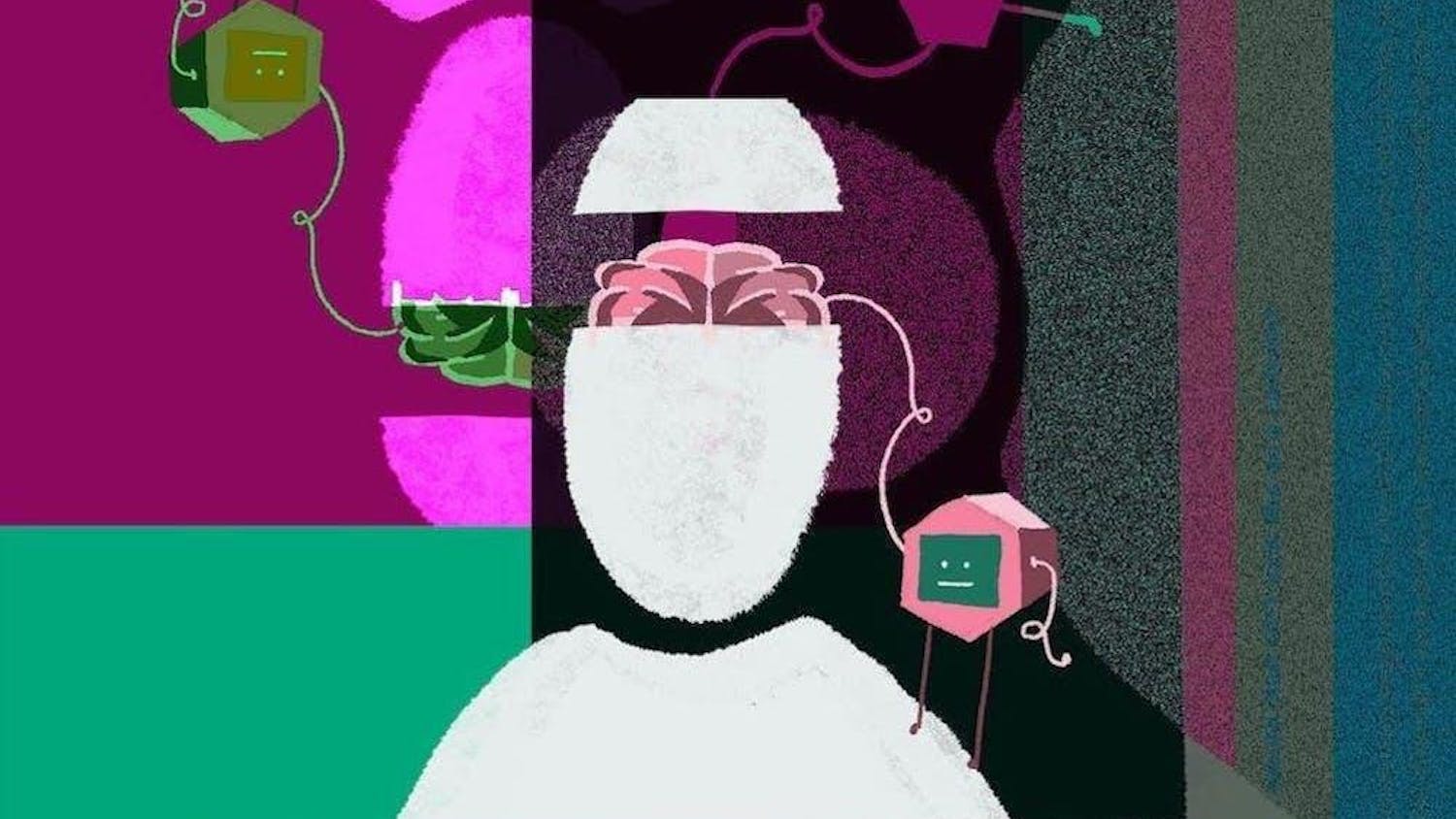Science can explain why humans believe in God, but that explanation does not discredit God's existence, Justin Barrett, professor of psychology at the Fuller Theological Seminary, told an audience of about 250 at the University's third annual Veritas Forum in Salomon 101 Wednesday night. The forum seeks to "engage students and faculty about life's hardest questions and the relevance of Jesus Christ to all of life," according to the organization's website.
Barrett studies the cognitive science of religion and has authored three books on the topic, including one published in 2011 titled "Cognitive Science, Religion and Theology" and one published in March entitled "Born Believers: The Science of Children's Religious Belief."
"Why do people believe in God?" Professor of Biology Ken Miller '70 P'02 asked as he introduced Barrett. "Is religion a form of conditioning that we impose upon our children, surviving only because of the insistence of powerful cultural actors?" Or, Miller continued, "is there something innate in the human psyche that compels us to seek reason to believe?"
Barrett's talk drew on scientific evidence that supports biological rather than cultural foundations of religious belief. He began by pointing to the existence of religious beliefs in a wide range of communities and proposed that the way the human mind naturally responds to the environment accounts for religion's universality.
To understand the way the mind works, one must discard the commonly used "sponge model," he said. Rather than just soaking up everything, the human mind processes ideas through two systems - a fast system, which accounts for immediate, gut intuitions, and a slow system, which further examines ideas from the fast system, Barrett said. "Unless you have good reason to think that (the fast) system is mistaken, that's the way you form your belief," Barrett said.
The human mind has "conceptual gaps," which seek to be filled with causal explanations, Barrett said. But only some explanations will fill those gaps well enough to pass through the more critical "slow system," Barrett said.
The existence of some type of God appeals to the mind partly because of its ability to identify things in the environment with agency, such as people and animals. This device, Barrett said, was crucial evolutionarily because it makes us attuned to "actors" that could potentially be threatening to our survival. That same device "gives us reason to think there's an agent around that later investigation shows can't be a normal human or animal type of agent. It must be special," he said.
Barrett said there are also other "developmental biases" that cause people to believe that there is some "super-knowing, super-perceiving and perhaps immortal" God-like figure. For example, experiments have shown that young children believe that everyone around them is all-knowing because they have not yet developed the ability to understand other people's mental states. This non-religious feature of children minds could explain their ability to conceptualize and believe in one or more gods, Barrett said.
But some scientists say the very fact that belief in God can be explained by evolution renders God unreal. In other words, if we know why we believe in God, then we know God is not real. In response, Barrett quoted one of the lines from the seventh Harry Potter book, in which Dumbledore explains to Harry that just because something is happening inside his head does not mean it is not real.
"Evolutionary psychologists can tell you why you think your mother loves you," Barrett said, comparing the belief in a mother's love to the belief in God. Just because they can explain that through science, it does not mean her love does not exist, Barrett said.
Human belief in God may actually serve as weak evidence for God's existence, he said. If there was no God, the probability that so many people evolved to believe in one God would be lower, he said.
This is where their beliefs diverge, Miller told The Herald. While Miller said he agreed with Barrett's assertions that science and religion are compatible and that biology explains the origin of religious belief, he does not see those beliefs as "weak evidence" for the existence of a God.
Barrett clarified that his work in the realm of cognitive science is not what compelled him to believe in God. Like many Christians, he had the strong impression that there are "deeper meanings and purposes in events" and likes the idea that there is a "law-like and regular" force in the universe.
After Barrett's talk, Miller posed a few questions for Barrett and then moderated a question and answer session with the audience.
Barrett said he thinks constructing a society without some form of religion or spirituality would be nearly impossible. Despite a marked drop in Christianity over the past 30 years, specifically within the United Kingdom, beliefs in other spiritual forces like ghosts or astrology have nearly doubled, he said.
Barrett said evolution can probably also explain why some people do not believe in God, but more work is needed on the topic. "Suppose we do come up with such an explanation," Barrett said. "Then we've explained away God and explained away not-God. Clearly, we haven't explained away either one."




